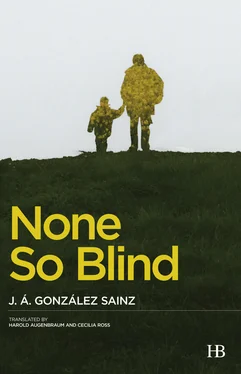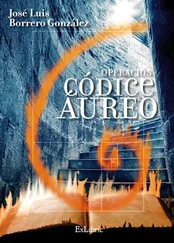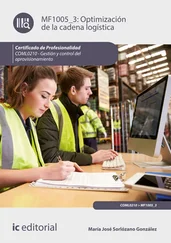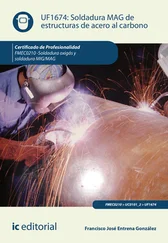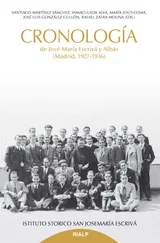He realized that he was glaring at her with a degree of vehemence and fury he didn’t believe he’d ever looked at anyone with before, and then he left abruptly — he opened the door, went slowly down the stairs, and set off to walk. That night, as if it were the most natural thing for him to do, as if more than an inclination or a necessity, it were his true character, the activity and the place in which everything that could be conceived of in terms of people and things, and everything impenetrable that in the end existed within everything became plain, he once again walked along what was most likely the only place he knew how to walk along anymore, on the shoulder of the road by the metalworks and the tire retread shop and the long hangar with the high, windowless wall against which he felt particularly helpless as he passed, and afterward by the gas station with its lot full of trucks, which gave him the impression they would run him over as he crossed it, even though they were parked, and then finally the warehouse and the automobile dealership and the interchange, and that brought him to the factory.
When he got to the gate — the halberd tips on the top of the fence would become oddly stamped in his memory — he stopped for a moment and then went on again, mile after mile, to the next town. Once there, in the only bar open at that time, now well into the wee hours, he ordered something to eat and consumed it slowly at the counter, unhurriedly, with his gaze fixed not really on any one thing or another but, you might say, on the gaze itself. You might come to the conclusion that he wanted to intentionally engender suspicion, or maybe just the opposite, that he was endeavoring, poorly as it were, to go unnoticed, but after a while he called the waiter over, paid him with the same unhurriedness, and the same expression, and the same indecipherable attempts to either create mistrust or to hide it that he had exhibited while seated there on that barstool eating, and he started walking again in the opposite direction, toward the factory.
Cars zoomed by, whipping up the air beside him, and some of them honked at him or sped close past him, but not even to the trucks that seemed as if they were going to tip him over, swallowing him up in the great pockets of emptiness they created in their wake, did he seem to pay attention. The vehicles’ headlights coming toward him illuminated him intermittently, dazzling him, and even though he usually stayed as far onto the shoulder as he could — a man on the side of the road, he recalled, a man on the shoulder of the road, that’s what you are, or what you’ve become — in those wee hours everything seemed to indicate that he had forgotten the meaning of distances and margins.
When he arrived back at the factory fence topped with heavy iron bars in the shape of halberds, he sat down next to one of the pillars at the closed gate and slowly fell asleep, scrunched in an increasingly tighter ball.
Dawn had not quite completely broken when the kidnapped industrialist, who had that very day come back to work, early, woke him up. What a coincidence, he said, surprised to have found him there in such a state, as he helped him up, but one of the first things I wanted to do was to thank you and everyone else for what you’ve done.
“There’s no need to thank us,” he responded, getting up with some difficulty. His body had gone completely stiff and his eyes were bleary; it seemed it was going to take a while for him to warm up.
“It’s not going to be an easy thing for you all to go on living here now,” the industrialist continued, not finding the conversation as easy to sustain as he would have liked.
“It’s never an easy thing to go on living, if you come right down to it.”
11
A little more than a year after that morning, the factory was acquired by a multinational group that wasted no time enacting a large-scale workforce reduction plan. The company had begun to fare badly; the kidnapped industrialist, who must have been the one who really held the reins and to whom fell the heavy task of making the most important strategic decisions, had not succeeded in overcoming the depression he’d fallen into after his kidnapping, and his dedication to his work had suffered greatly, so the company, not being able to rely on him as before, had, apparently at the very first sign of trouble, begun slowly but surely to drift, and according to what people were saying, that was the reason it had ended up being not only sold off, but sold at a loss. Among other provisions, the personnel adjustment immediately established by the new ownership would include a series of early retirement offers, and Felipe Díaz Carrión, not thinking twice, accepted one without batting an eye. Truth is, it was like an act of God, his son Felipe said. An act of God, he repeated. An act of God.
He would go back to the village, to his house with the great door and the bronze knocker and the patio with the old cherry tree that his father, may he rest in peace, had planted, and back, too, to his field and his road by the river. At least there he wouldn’t have to put up with anyone threatening him or giving him the evil eye just for going about his business, threatening you and who knows what all else, certain friends would say to him. With the money from the retirement payout, he could fix up the house, as far as possible, and still underwrite part of the costs his younger son’s university education required, at least at first. He wanted to study biology and go live in Madrid; he had already agreed with a couple acquaintances of his who were also leaving the area, as a lot of people were, and were going to open a restaurant in Madrid that they would hire him on as a waiter for as long as things were going well. We’d have to be doing really badly not to be able to hire him at least for the weekends, they assured him.
Asunción kept the apartment, which they had finally finished paying off just a short while earlier, in one of the six identical buildings alongside the highway leading to the factory; she also kept the furniture that was so garish it seemed to be arguing with whoever was using it and whatever other objects it was meant to be used with. And he held on to the field by the river and the house on the outskirts of the village, which had belonged to his father, and before that to his grandfather, and which his great grandfather had, according to what he had heard from them, apparently built when he came back from America with just enough money for a place to live, which wasn’t much compared to the elegant magnificence of the typical homes of Spaniards returning from America.
“I’m going back to the country,” he’d said to Asunción over the phone.
“You’ve always loved that precious countryside of yours,” she replied sarcastically.
“That must be it.”
Asunción had been elected as a councilwoman in the most recent municipal elections, representing a party everyone knew all there was to know about without actually having to know anything. People wondered whether her son Juanjo, whom nobody called Juanjo anymore, but Potote, and who’d been working in France and whom he hadn’t seen in more than two years, might not have been involved in some way in her election. One day, one day during the final month he spent working at the chemical factory, he’d gone to eat his sandwich with his coworkers at a bar nearby — it was his birthday, sixty years old, sixty big ones, so it was up to him to treat everyone — and he found himself mesmerized by a photograph in the newspaper he had used, following his general practice, to wrap up his sandwich before leaving the house. Next to three other women, sporting that exact same hairstyle that was not so much old-fashioned as it was primeval or primitive, Asunción posed for the camera with a smile he attempted to recognize and that ended up seemingly gnawing at him from within. The photograph was taken in the same square where he, alongside a few others, had gone, every day at the exact same time, week after week for almost a year, to call for the release of a man buried alive; you might even say, if you looked closely, as he was doing, that it was the exact same spot where they themselves had stood behind their banner, swallowing the ire and malevolence of certain people and the indifference or cowardice of others, in order not only to demand, by their mere presence, respect for a single person’s life and freedom but to remind everyone of what, in a supposedly civilized country, you would think it might not be necessary to remind anyone of anymore, and yet it was necessary to do so, over and over again, unflaggingly, and that was, namely, that every person sees and thinks in his own way but that, as convinced as someone may feel that he is right about something, or in the right about something — you can always convince yourself of whatever you like and for whatever reason, his father always used to say — that doesn’t mean that other people are under any obligation to see and think like him, nor that that person has the right to any such thing, much less any right that could be assigned pretty words and turned into some sort of standard or smokescreen, and that a person can even do whatever he wants, as he liked to explain again and again, but not just whatever he feels like.
Читать дальше
